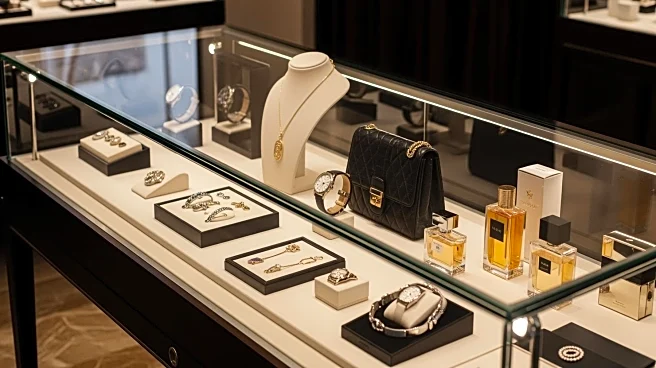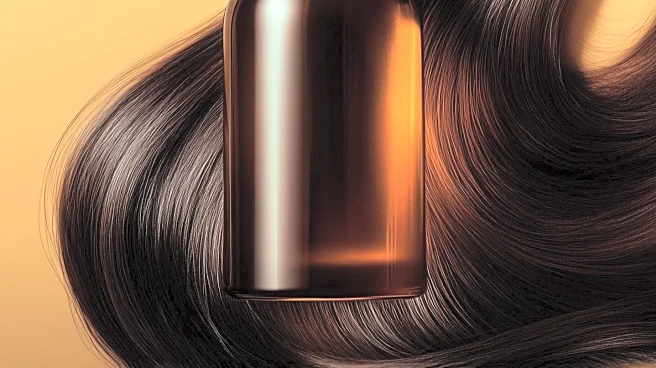What's Happening?
The luxury goods industry is experiencing a perceived decline, with recent headlines suggesting the 'end of luxury.' This sentiment is driven by the belief that younger generations, particularly Gen Z, are moving away from traditional luxury brands like
Louis Vuitton, Hermès, and Chanel, favoring practicality and minimalism. Despite these claims, the desire for luxury remains, as historical patterns show that luxury consumption is cyclical and often reflects broader economic conditions. The industry is adapting by shifting from loud monograms to 'quiet luxury,' focusing on experiences over products, and balancing heritage with novelty.
Why It's Important?
The discussion around the decline of luxury goods highlights broader economic uncertainties. Luxury items are often the first to be cut from budgets during economic downturns, serving as indicators of consumer confidence. However, the underlying aspiration for luxury persists, suggesting resilience in the industry. This shift could impact luxury brands' strategies, prompting them to innovate and cater to evolving consumer preferences. The industry’s ability to adapt to generational changes and economic cycles will determine its future success, influencing market dynamics and investment opportunities.
What's Next?
Luxury brands may need to reassess their marketing strategies to appeal to younger, more practical consumers. This could involve emphasizing sustainability, ethical production, and unique experiences. As economic conditions stabilize, luxury consumption may rebound, driven by renewed consumer confidence. Brands that successfully navigate these changes could strengthen their market position, while those that fail to adapt may struggle. The industry will likely continue to evolve, reflecting both generational preferences and economic realities.
Beyond the Headlines
The shift in luxury consumption patterns raises questions about cultural values and aspirations. As younger generations prioritize sustainability and ethical considerations, luxury brands face pressure to align with these values. This could lead to a transformation in the industry, where luxury is defined not just by exclusivity but also by social responsibility. The long-term implications may include a redefinition of luxury, where status is linked to ethical consumption and environmental stewardship.















